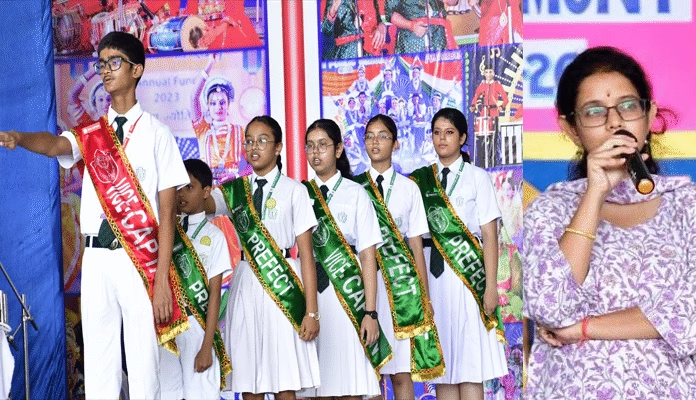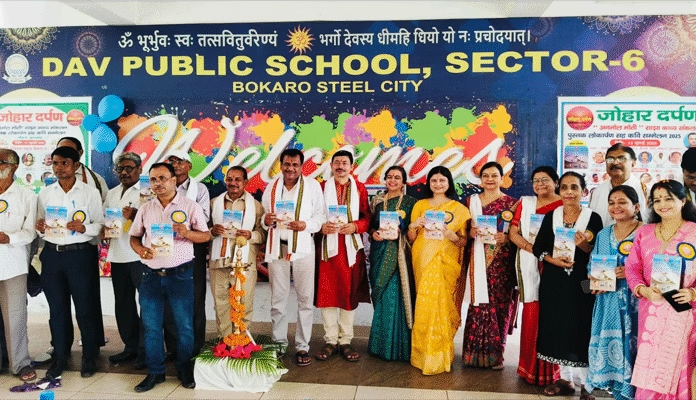 RNS: CSIR- National Metallurgical Laboratory, Jamshedpur and UNQ. IND. PVT. LTD., Firozabad inked a Memorandum of Understanding (MoU) to boost cooperation in the sector of e-waste recycling. NML signed an MoU for technology transfer for the extraction of cobalt metal/ salt from black powder of lithium batteries. MoU transfer took place in presence of the company’s director, Anuj Kumar Garg and RK Rathor along with Dr. Indranil Chattoraj, director NML, Sanjay Kumar, head MER Division, Dr. Manis Kumar Jha, senior principal scientist & project leader, Jhumki Hait, principal scientist.
RNS: CSIR- National Metallurgical Laboratory, Jamshedpur and UNQ. IND. PVT. LTD., Firozabad inked a Memorandum of Understanding (MoU) to boost cooperation in the sector of e-waste recycling. NML signed an MoU for technology transfer for the extraction of cobalt metal/ salt from black powder of lithium batteries. MoU transfer took place in presence of the company’s director, Anuj Kumar Garg and RK Rathor along with Dr. Indranil Chattoraj, director NML, Sanjay Kumar, head MER Division, Dr. Manis Kumar Jha, senior principal scientist & project leader, Jhumki Hait, principal scientist.
On this occasion, Garg expressed satisfaction and was also very much excited for this part to extract cobalt from waste mobile phone batteries. He said soon they will start the process on ton scale in association of NML. Dr. Manis Kumar Jha, senior principal scientist of CSIR-NML, Jamshedpur said that NML has expertise in developing feasible technologies to treat electronic waste being generated in huge quantity. He marked that NML is ready with different technologies and wished to enhance and explore more potential in the area of e-waste recycling so as to enhance its societal uses in health, agriculture, industrial application, training and exchange of knowledge. Director NML, Dr. Indranil Chattoraj was very happy to express his feeling as NML has transferred more than 10 technologies in very short period and said much more is expected in recent times. The transfer of MoU was mentioned to be a great step towards the “Swachhata Abhiyan” and each team member was very much proud to be a part of this ‘Abhiyan’.
Both sides agreed to further explore more possibilities for collaboration in areas of electronic waste recycling.
Huge generation of mobile phone batteries, its rudimentary disposal, improper collection system as well as lack of cost-effective processing technology has resulted in the loss of valuables encapsulated in it. No effective technologies exist at present within the country for safe recycling of the electronic waste in the industry. In this regard, CSIR- National Metallurgical Laboratory, Jamshedpur has made sincere efforts towards the ecological recovery of cobalt and other valuable metals from the black powder and other constituents of LIBs.
But heterogeneous nature of variety of batteries (branded, local and cheaper) received from the municipal waste put forward a great challenge during the technology development.
The active cathode materials of LIBs contain variable concentration of cobalt, lithium, copper, manganese, etc. which make the chemical processes for metal recovery more complex. But the hydrometallurgical route adopted by the CSIR-NML team is very selective and exigent.



